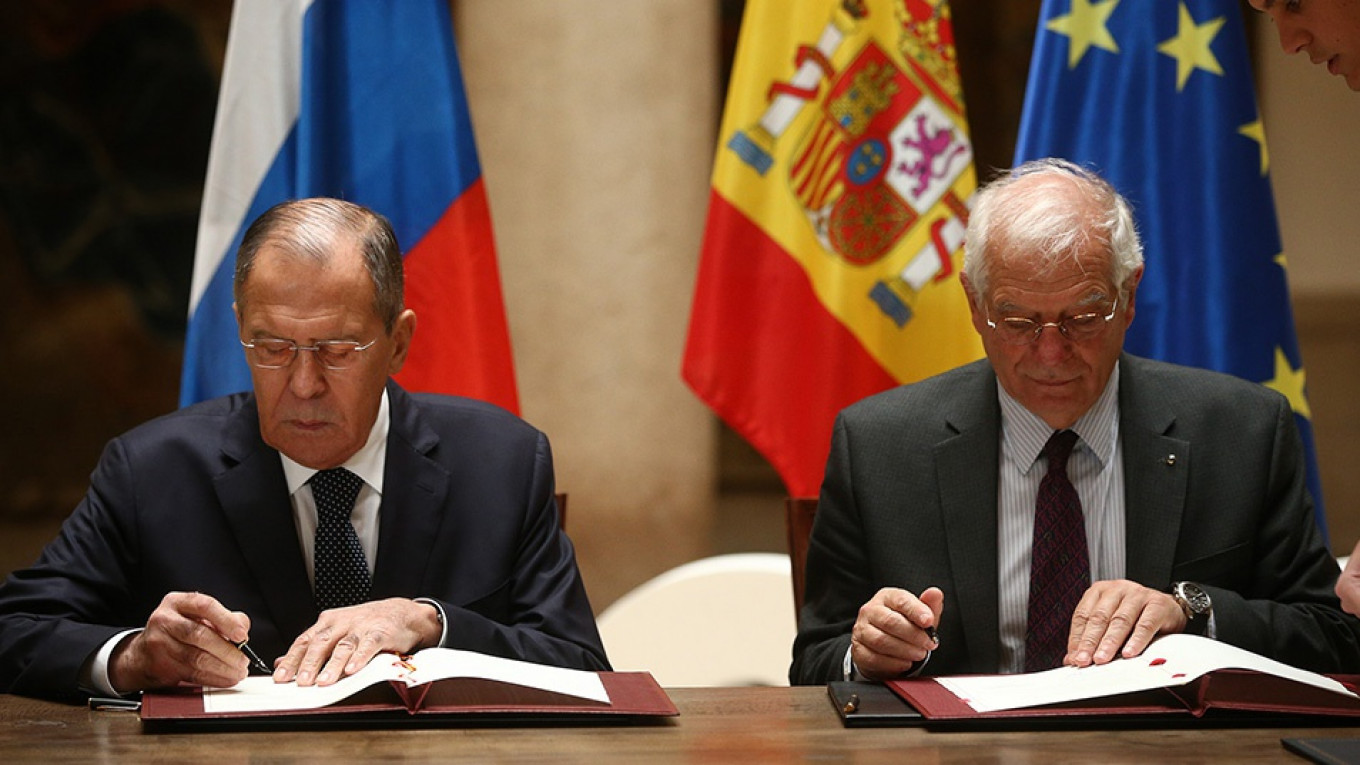Russia and Spain have reportedly agreed to set up a joint cybersecurity group to prevent diplomatic relations from being damaged by the spread of misinformation.
Spanish ministers said last November that Russian-based groups had used online social media to heavily promote Catalonia’s independence referendum in an attempt to destabilize Spain. Russian Foreign Minister Sergei Lavrov has dismissed the allegations as “hysteria.”
Lavrov and his Spanish counterpart Josep Borrell said they agreed to establish a joint cybersecurity group to keep the spread of misinformation from damaging bilateral ties, The Associated Press reported Tuesday.
“It seemed to me that our Spanish partners are interested in the idea of establishing a working group on cooperation in ensuring cybersecurity,” Lavrov said following the bilateral talks in Madrid.
Borrell was quoted as saying that he welcomed Lavrov’s proposal in order to “gauge the extent of the problem and analyze it to prevent it from becoming a source of friction.”
Lavrov relayed Borrell’s concerns “that some Russian media go beyond their journalistic mission and are involved in unacceptable interference in domestic electoral processes in other countries.”
“[W]henever we are suspected of anything we suggest discussing professionally the grounds for these accusations at the negotiating table,” he said. “We do not want our relations with Spain, our good friend, to go awry. We want these concerns not to be silenced but to be presented based on specific facts.”
Last year, U.S. President Donald Trump backtracked on plans to create a cybersecurity unit with Russia following talks with President Vladimir Putin.
U.S. intelligence agencies have concluded that Kremlin-backed entities meddled in the 2016 presidential election campaign to try to boost Republican candidate Donald Trump, an accusation Moscow has repeatedly denied. Intelligence officials have said that Moscow remains a threat to U.S. elections.
Reuters contributed reporting to this article.
A Message from The Moscow Times:
Dear readers,
We are facing unprecedented challenges. Russia's Prosecutor General's Office has designated The Moscow Times as an "undesirable" organization, criminalizing our work and putting our staff at risk of prosecution. This follows our earlier unjust labeling as a "foreign agent."
These actions are direct attempts to silence independent journalism in Russia. The authorities claim our work "discredits the decisions of the Russian leadership." We see things differently: we strive to provide accurate, unbiased reporting on Russia.
We, the journalists of The Moscow Times, refuse to be silenced. But to continue our work, we need your help.
Your support, no matter how small, makes a world of difference. If you can, please support us monthly starting from just $2. It's quick to set up, and every contribution makes a significant impact.
By supporting The Moscow Times, you're defending open, independent journalism in the face of repression. Thank you for standing with us.
Remind me later.





